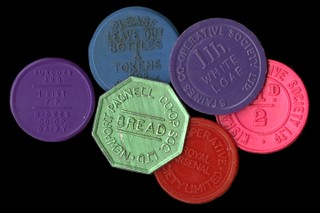
PREV ARTICLE
NEXT ARTICLE
FULL ISSUE
PREV FULL ISSUE
BRITISH MUSEUM: THE HOUSE OF MEMORIES APP
Arthur Shippee forwarded this article from the British Museum blog, published August 17, 2015. Thanks! -Editor
The British Museum is, in part, renowned for objects that are often viewed as the pinnacle of human artistic expression. These objects are made using the finest materials, for or at the behest of the most influential and powerful in society. And yet the Museum is also full of objects that don’t speak of privilege and wealth. They speak of the lives of ordinary people, what they may have worn, what they believed, what they ate and drank from and most interestingly for me, what they used to pay for things. A few months ago my colleague Mieka Harris (The Citi Money Gallery Education Manager) and I worked on a project with National Museums Liverpool where we were asked to suggest objects from the Coins and Medals collection at the British Museum which could be used in an app. The app was to be produced as part of the House of Memories project which aims to support the carers of people living with dementia. The app, now in its third incarnation, includes objects from National Museums Liverpool, The Cinema Museum in Elephant and Castle, Brighton Pavilion and Museums, Bexley Museum and Heritage Trust and the British Museum. Our brief was to suggest objects that would have been used in ordinary life. The Coins and Medals collection is perfect for this. The material culture of money not only touches almost everyone in society but can also be very evocative. This fact, when combined with the great variety of objects in the collection, made the decision-making process rather tricky.
To read the complete article, see:
THE BOOK BAZARREWayne Homren, Editor The Numismatic Bibliomania Society is a non-profit organization promoting numismatic literature. See our web site at coinbooks.org. To submit items for publication in The E-Sylum, write to the Editor at this address: whomren@gmail.com To subscribe go to: https://my.binhost.com/lists/listinfo/esylum All Rights Reserved. NBS Home Page Contact the NBS webmaster 
|
